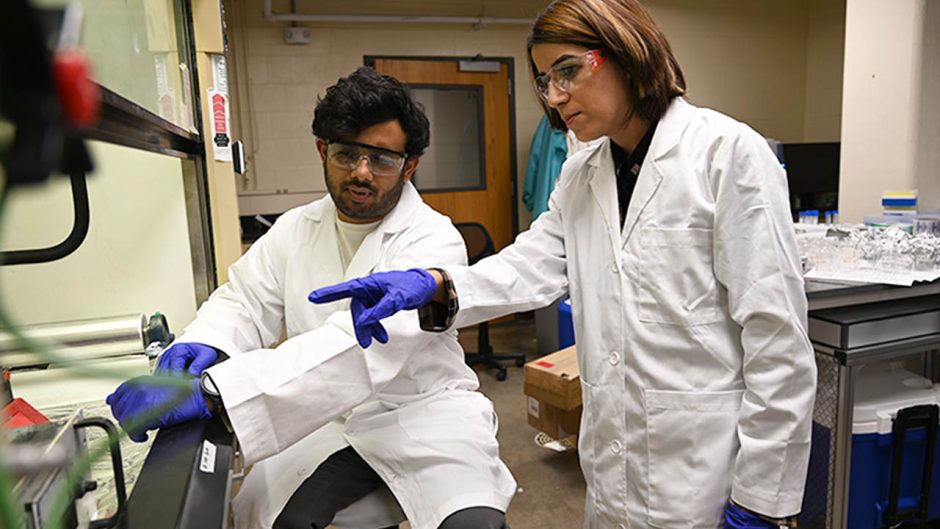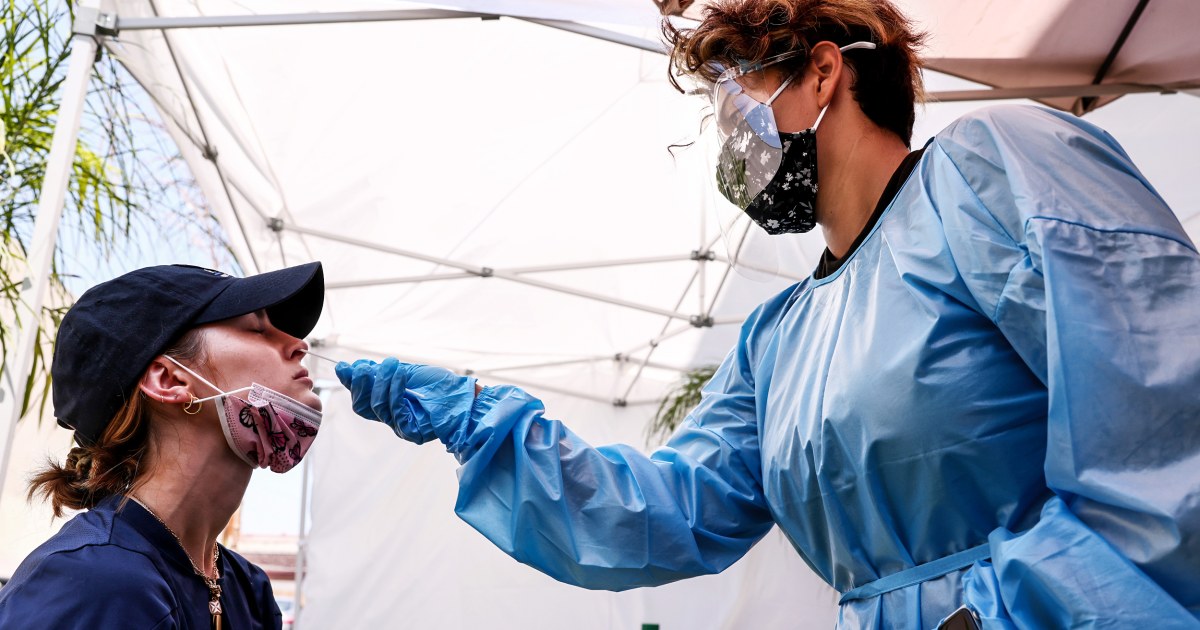
University of Missouri
Water filters on the market today can remove some contaminants, but they’re not designed to capture microplastics. In fact, some of them may actually add small plastics into drinking water during the filtration process. What’s worse is these microplastics can cause inflammation, increase the risk of cancer and act as carriers for harmful chemicals that trigger other health problems.
University of Missouri researcher Maryam Salehi and collaborators are coming up with a new way to trap those tiny invaders — and protect the public — through a fabric-like filter.
“The idea is to design a filter that can be attached to a faucet so it can remove microplastic and lead at the same time from tap water,” said Salehi, an assistant professor of civil and environmental engineering in Mizzou’s College of Engineering. “We’re envisioning an inexpensive point-of-use filter that could connect to any faucet.”
The filter membrane is made from polyvinyl alcohol fibers, which are polymers currently used in biomedical applications. The team chose the material because it’s low-cost and biocompatible, meaning it’s not toxic to humans, animals or plants.
/cloudfront-us-east-2.images.arcpublishing.com/reuters/GGMGHBONFRM6TCFALZQYWYSVRE.jpg)




















/cdn.vox-cdn.com/uploads/chorus_asset/file/25355895/STK022_ELON_MUSK_CVIRGINIA_C.jpg)
